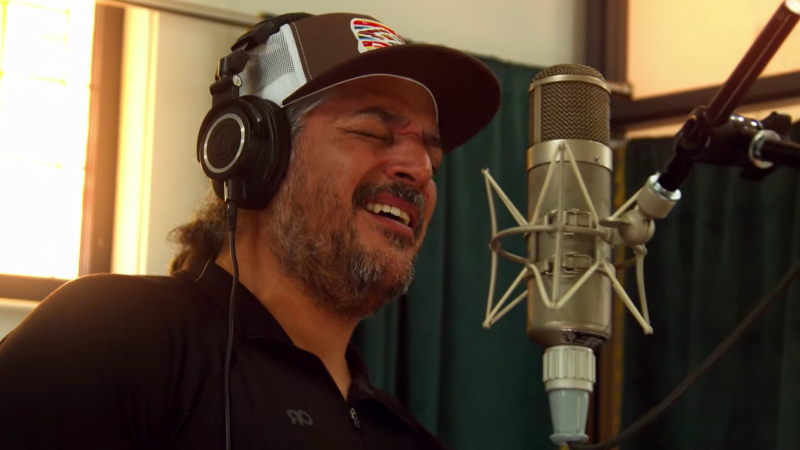Feedback inhibition of humoral immunity by antibodies was first documented in 19091. Subsequent work showed that, depending on the context, antibodies can enhance or inhibit immune responses2,3. However, little is known about how pre-existing antibodies influence the development of memory B cells. Here we examined the memory B cell response in individuals who received two high-affinity anti-SARS-CoV-2 monoclonal antibodies, and subsequently two doses of an mRNA vaccine4-8. We found that monoclonal antibody recipients produced antigen binding and neutralizing titers that were only fractionally lower than controls. In contrast, their memory B cells differed from controls in that they predominantly expressed low-affinity IgM antibodies that carried small numbers of somatic mutations and showed altered RBD target specificity consistent with epitope masking. Moreover, only 1 out of 77 anti-RBD memory antibodies tested neutralized the virus. The mechanism underlying these findings was examined in experiments in mice that showed that germinal centers (GCs) formed in the presence of the same antibodies were dominated by low-affinity B cells. Our results indicate that pre-existing high-affinity antibodies bias GC and memory B cell selection by two distinct mechanisms: (1) by lowering the activation threshold for B cells thereby permitting abundant lower-affinity clones to participate in the immune response, and (2) through direct masking of their cognate epitopes. This may in part explain the shifting target profile of memory antibodies elicited by booster vaccinations9.
May 4, 2024
live
breaking
 Yankees’ offense awakens in 5-3 win over Tigers but Aaron Judge gets ejected
Yankees’ offense awakens in 5-3 win over Tigers but Aaron Judge gets ejected
 As States Resist Federal Gender Rules, Schools Are Caught in the Middle
As States Resist Federal Gender Rules, Schools Are Caught in the Middle
 Music: Adrian Sutherland’s ‘Precious Diamonds’ | CNN
Music: Adrian Sutherland’s ‘Precious Diamonds’ | CNN
 Opinion | The Three Faces of Don
Opinion | The Three Faces of Don
 Is the NYPD too political? Cops drive Gaza protest narrative with slick video of Columbia raid
Is the NYPD too political? Cops drive Gaza protest narrative with slick video of Columbia raid
Antibody feedback regulates immune memory after SARS-CoV-2 mRNA vaccination – Nature
1 year ago
1 min read

More News
Author Correction: Stepwise activation of a metabotropic glutamate receptor – Nature
Changing rainforest to plantations shifts tropical food webs
Streamlined skull helps foxes take a nosedive